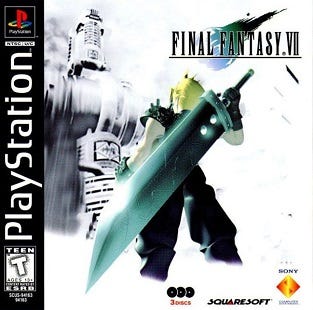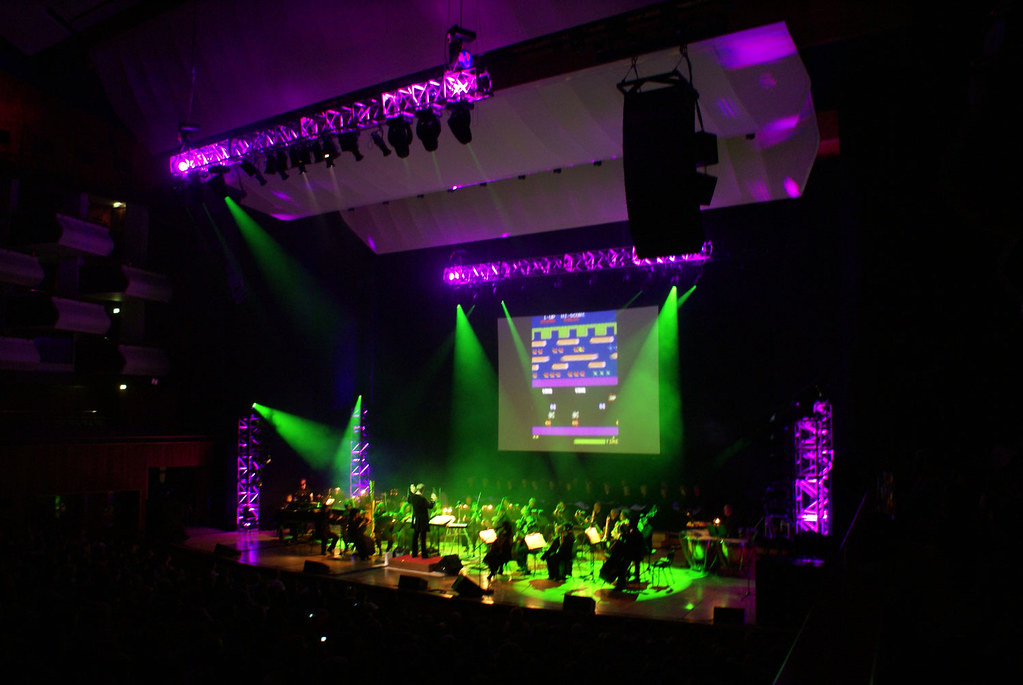An Ode to Video Game Music
A gateway to the world of music
Whilst recently making a video about Sega Mega Drive game music I was struck with a wave of nostalgia.
I could instantly recall so many of these tunes in minute detail, down to how far through a level each one played.
And this got me thinking, computer games form many of my earliest musical memories (along with TV advert jingles!).
Maybe that’s just a reflection on my childhood, but there must be a reason for their ability to lodge in your memory.
Early video game music was limited by hardware. When a song can only have one or two tracks with a small palette of sounds you really have to get the most out of it. Many programmers would turn to the world of classical music for this. You had an abundance of catchy, recognisable melodies that were copyright free.
But the limitations of computer memory meant that you couldn’t have a full length symphony play and be done with it. Japanese pianist and legendary video game music composer Yoko Shimomura recalls :
When I started writing on [Nintendo’s] Super Famicom Disk System, the space I had to create all the music and effects was about 20 megabits (2.5 megabytes), which isn’t even big enough to store a single photograph these days. That meant the music had to be very short. I thought it was impossible but everyone before me was doing it, so I had no choice.
These limitations meant that anyone writing music for video games would need very catchy, short melodies that could be looped.
And as games consoles developed in the 1980s the soundtracks became an integral part of the experience. If you’ve ever played a Mario or Sonic The Hedgehog game the music and sound effects are as important as the gameplay experience.
I think another thing that made these musical experiences so memorable was the limited exposure you had to some of the songs. Back when you couldn’t save game progress, the later you got in to a game the more exciting and rare the music was. A game like Kid Chameleon, which was really difficult for me as a child, had a world of music I never experienced. And with such great tunes in the early game that felt like a real shame!
As it turns out the Sega Mega Drive that I grew up with was a turning point for video game music.
It used a more sophisticated sound chip, derived from the classic synthesiser the Yamaha DX7. The sounds from this are everywhere in 80s pop - think Take On Me by A-Ha or Shout by Tears For Fears.
With this new hardware, Sega turned to J-pop artist Masato Nakamura to create the soundtrack for Sonic The Hedgehog.
At the time, MTV and films were very popular. There were a bunch of hit songs, like those from Top Gun, Flashdance, and Dirty Dancing. So I wanted to write songs like that for Sonic the Hedgehog as a film.
This opened the floodgates to an era of great video game music.
And as technology developed in the 90s, these ambitious video game composers could utilise increased computer memory to write longer more complex songs with a range of sounds.
Another sign post in my musical memory is the Final Fantasy series on the original PlayStation.
Composed by Nobuo Uematsu, it was a full on orchestral experience that took you on a journey along with the game. And with a game this long and complex, the advent of game saves meant that you could take as much time as you needed to explore and enjoy this gaming and musical universe.
We were also entering an era where games started to use real tracks from popular music. Two games using this that spring to mind were FIFA: Road to World Cup 98 and Grand Theft Auto: London 1969.
The use of “real” music felt like a turning point, where what I saw on TV or heard on the radio was now in the games I played. This had happened earlier in gaming history, for example in Michael Jackson's Moonwalker, but now you could hear the full track as if you were playing the CD.
And now we live in world where video games are the biggest selling form of entertainment. The soundtracks are massive orchestrations, with equally huge budgets, that used to be restricted to blockbuster movies. Famous actors want to voice characters in games and popular music artists want their tracks to be featured.
Video game music also transcends the world of adolescent boys bedrooms with the success of events such as Video Games Live. I remember going to the first showing of this in London and it being a revelation. Video game music worked as well played by an orchestra as any classical piece. And there were thousands of people in the Royal Festival Hall enjoying the experience, most of whom didn’t even play video games but were just fans of music.
Has this success taken away some of the magic from video game music? I don’t think so. You look at companies like Nintendo, who continue the tradition of this music through every generation of their games and consoles. And even the shortest browse of YouTube will show you channels who love gaming and the music that goes with it.
There are even channels that use video game music to teach music theory!
And who knows what development in music will come next from the world of computer games.
Whether you are getting in to gaming for the first time or taking yourself on a nostalgia trip, the importance and beauty of video game music is undeniable.






